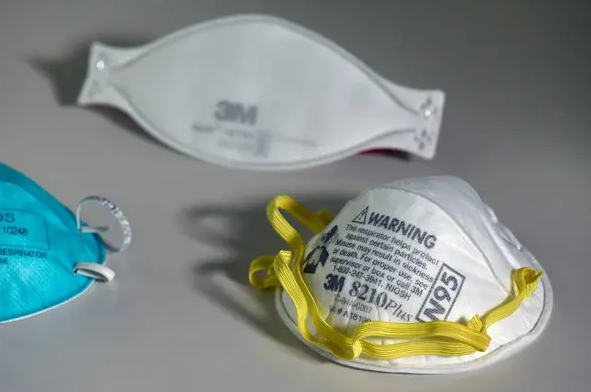Upfront costs would be hard to justify if the virus were quickly snuffed out.
如果病毒很快被消滅,前期成本將很難被證明是合理的。
So in January, the early phase of the outbreak, Chinese firms began by scouring the world for masks rather than by making more of their own.
所以在1月份,疫情爆發(fā)的初期,中國公司開始在世界各地搜尋口罩而不是自己進行生產(chǎn)。
It took government action to change that. Officials offered subsidies to firms producing safety gear: promising not outsized gains but an avoidance of losses.
政府采取了行動來改變這一點。政府向生產(chǎn)安全設備的公司提供補貼:承諾不會有太大的收益,但會避免損失。
China went from making 20m masks per day before the crisis—half the world's output—to nearly 120m by the end of February.
發(fā)生疫情前,中國每天生產(chǎn)2000萬只口罩——占全球產(chǎn)量的一半,到2月底,中國的口罩產(chǎn)量已接近1.2億個。
Profit, narrowly defined as the income earned from making masks, also fails to explain corporate motives. Regulation has been crucial.
利潤,狹義地定義為制造口罩的收入,也不能解釋企業(yè)的動機。監(jiān)管至關重要。
Companies in China could not resume operations until all their workers had masks, so automakers,
在中國,只有所有工人都戴上口罩,企業(yè)才能恢復運營,所以汽車制造商、
phone manufacturers and oil giants all added mask-production lines. And big companies also want to look like good corporate citizens.
手機制造商以及石油巨頭加設了口罩生產(chǎn)線。大公司也想讓自己看起來像良好的企業(yè)公民。

Peter Navarro, a trade adviser to America's president, accused 3M, one of the world's biggest manufacturers of high-end masks, of putting money before people.
美國總統(tǒng)的貿(mào)易顧問彼得·納瓦羅指責世界上最大的高端口罩制造商之一3M公司把錢看得比人還重要。
In fact, 3M has stuck to its list prices and doubled its production.
事實上,3M堅持了它的標價,并將產(chǎn)量提高了一倍。
Pricing is usually the best way to allocate resources, by revealing who is willing and able to pay for something.
定價通常是分配資源的最佳方式,因為它揭示了誰愿意并有能力為某物買單。
But there is no doubt now that masks are most essential for medical workers. Ordering large supplies at fixed prices is the right policy.
但毫無疑問,口罩對醫(yī)務工作者來說是最重要的。以固定價格訂購大量貨物是正確的政策。
The public benefit of a functioning health system far outweighs any harm in impeding sellers from maximising their profits.
一個正常運轉的醫(yī)療系統(tǒng)所帶來的公共利益,遠遠超過了阻礙銷售商實現(xiàn)利潤最大化所帶來的危害。
This was a point made to the University of Chicago's survey by one of the dissenting economists,
這是一位持不同意見的經(jīng)濟學家在芝加哥大學的調(diào)查中提出的觀點,
who argued that it was fair to cap prices after a natural disaster.
他認為,在自然災害之后限制價格是公平的。
"Efficiency is less important than distribution under such transitory conditions," said Angus Deaton, now a Nobel laureate.
諾貝爾獎得主安格斯·迪頓表示:“在這種暫時的情況下,效率不如分配重要。
In a global health crisis, his argument is even more compelling. Conventional morality—the revulsion against price gouging—trumps conventional economics.
在一場全球健康危機中,他的觀點更加令人信服。傳統(tǒng)道德——對哄抬物價的反感——勝過傳統(tǒng)經(jīng)濟學。
譯文由可可原創(chuàng),僅供學習交流使用,未經(jīng)許可請勿轉載。












